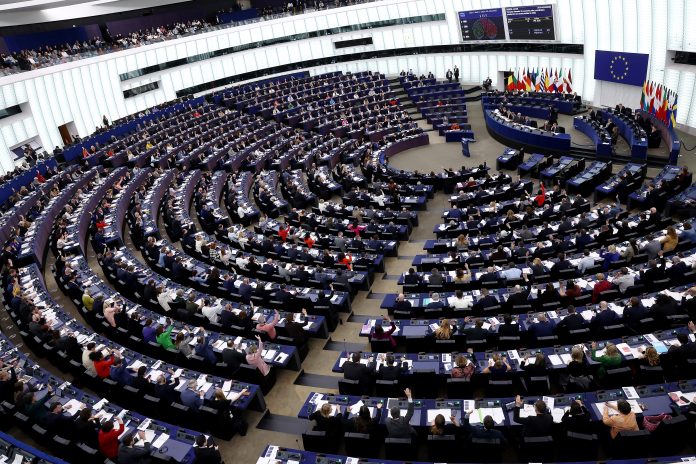The European Parliament has strongly condemned Thailand’s recent deportation of 40 Uyghur refugees to China, warning that the individuals face a high risk of torture and severe human rights violations.
The resolution, passed on Wednesday, criticized the move as a violation of international law and urged the Thai government to uphold human rights standards.
The 40 Uyghurs had been held in Bangkok’s Immigration Detention Center for over a decade after fleeing China in 2014 as part of a larger group.
Despite offers from other countries to resettle them, they were forcibly repatriated on February 27 under the cover of night, raising concerns about their fate upon return.
The European Parliament’s resolution underscored fears that the deportees would be subjected to “arbitrary detention, torture, and serious human rights violations,” Radio Free Asia (RFA) reported.
This concern is heightened by China’s long-documented repression of Uyghurs, with nearly two million believed to have been detained in so-called “reeducation” camps in the Xinjiang region.
While Chinese and Thai authorities have released videos claiming to show the deportees safely reunited with their families, independent verification remains impossible.
Uyghur activists argue that such staged footage is part of Beijing’s strategy to deflect international criticism.
Past cases suggest a grim fate may await those repatriated. RFA has confirmed that two Uyghur men, Memet Awut and Turdi Abla, were sentenced to nine years in prison after abandoning plans to flee China in 2014.
The two men, originally from Aksu in Xinjiang, had traveled to Yunnan province, bordering Myanmar, Vietnam, and Laos, but decided to return out of fear.
“They were in the detention center for 22 days and later transferred to Urumqi,” a police officer in Aksu told RFA Uyghur. “It’s written in their verdict that it was because they went to Yunnan. They came back from Yunnan themselves.”
The officer, who confirmed their imprisonment, added, “The verdict mentions that they couldn’t find a viable way out after moving to Yunnan and came back. Their crime is attempting to escape.”
Despite completing their sentences last year, both men remain behind bars in Urumqi, raising fears that the recently deported Uyghurs could suffer a similar fate.
The EU resolution called on China to provide transparency on the whereabouts of the deportees and to guarantee their rights are respected.
It also urged Thailand to “strengthen its institutions in line with democratic principles and international human rights standards,” while acknowledging Bangkok’s role as an important EU partner.
A spokesperson for the Chinese Embassy in Bangkok has defended the deportation, claiming the Uyghurs will undergo “vocational skills training” after reuniting with their families.
China has long insisted its policies in Xinjiang are aimed at combating extremism, though rights groups and former detainees describe widespread abuse, forced labor, and systematic repression.
The deportation has sparked international backlash, with Uyghur rights organizations and human rights advocates condemning Thailand for what they see as complicity in China’s repression.
Given the lack of access to the deportees, concerns remain over their treatment and the broader implications for Uyghur refugees seeking protection abroad.









